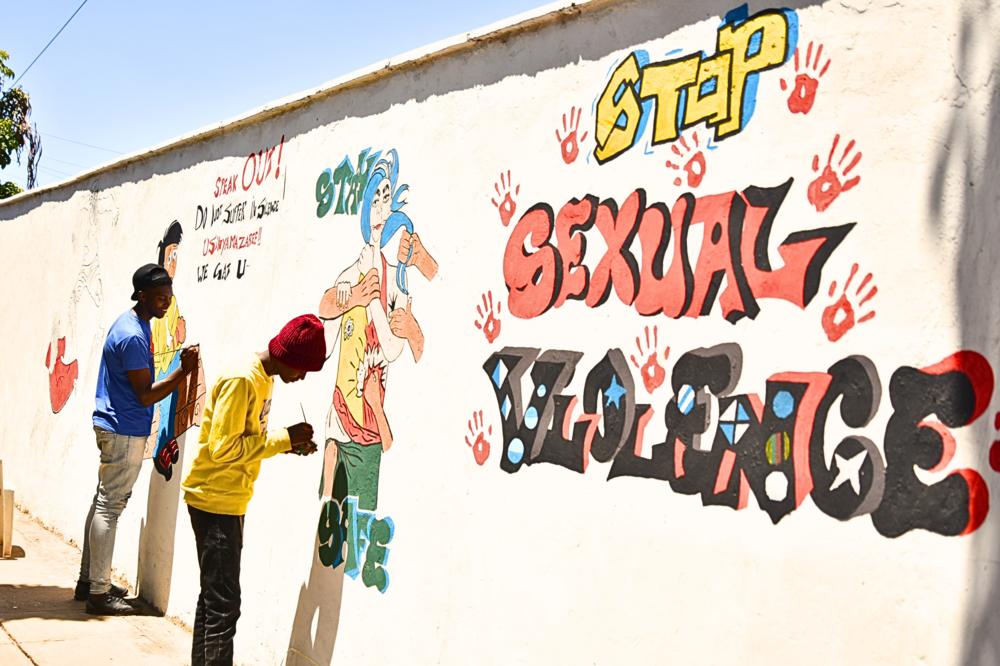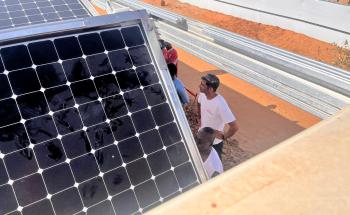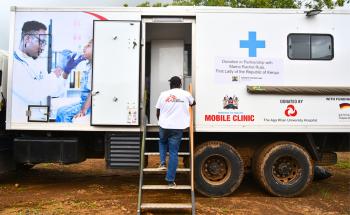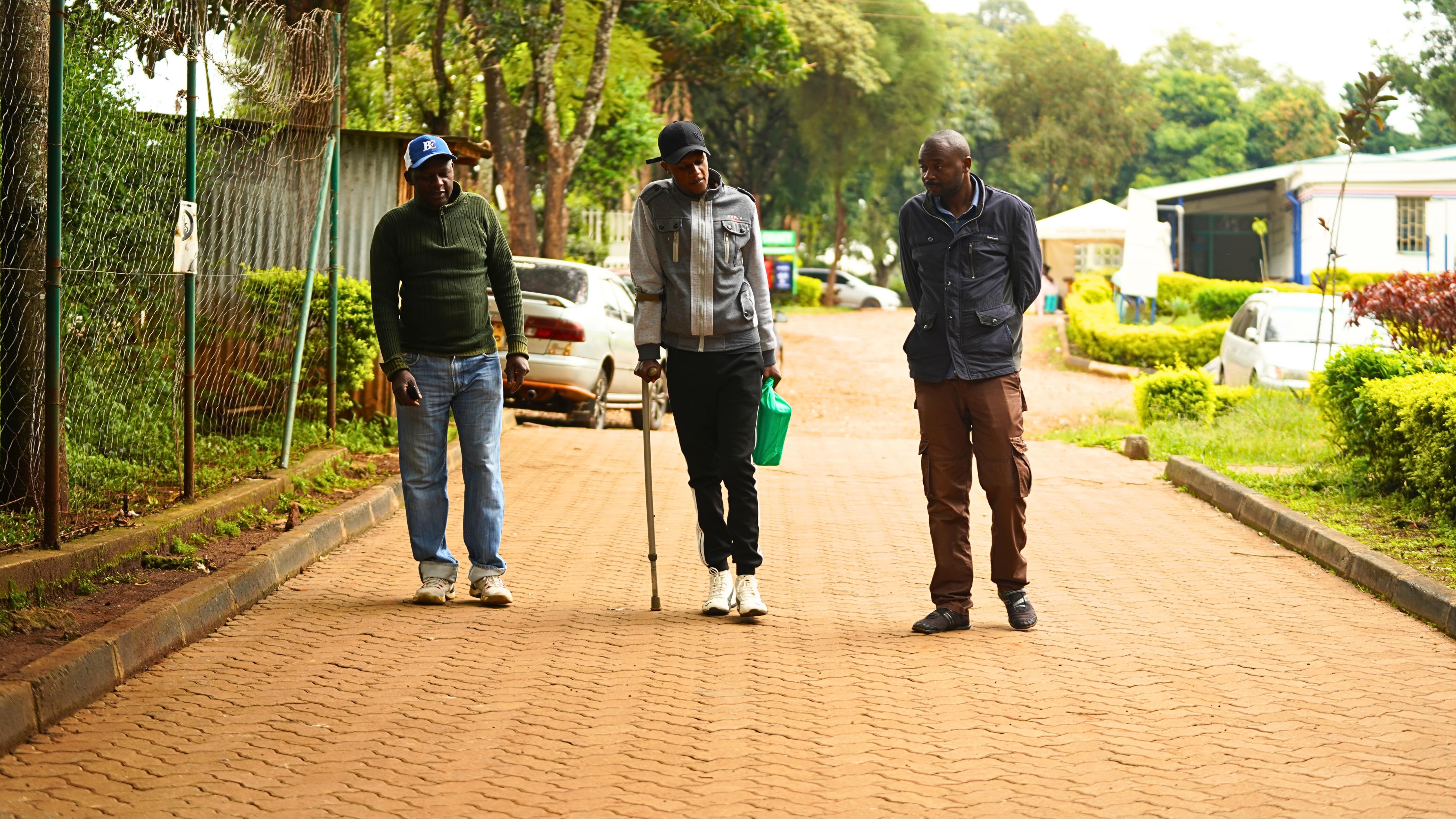Nairobi, Kenya’s capital city, hosts over 4 million people. Over half of them live in low-income, economically and socially secluded and disadvantaged settlements. Adolescents and youth form a large part of this population. Socioeconomic disparities, unemployment and poverty, urban violence, and challenges affect access to health services.
In Dandora, situated in Nairobi's Eastlands area, young individuals face heightened risks associated with violence, substance abuse, and sexual and gender-based violence, often leading to mental health repercussions.
What is Dandora Public Health Centre?
Unassuming from the streets of the Eastlands area of Nairobi, the Dandora Public Health Centre harbours a hidden treasure. Beyond a small green gate lies the bustling activity of the Youth Friendly Centre, a collaborative project between the Nairobi County Department of Health and Doctors Without Borders (MSF). MSF provides human resources, expertise, and medical supplies. Additionally, it works with the public health centre to give referrals and sensitisation for youth-friendly service delivery.
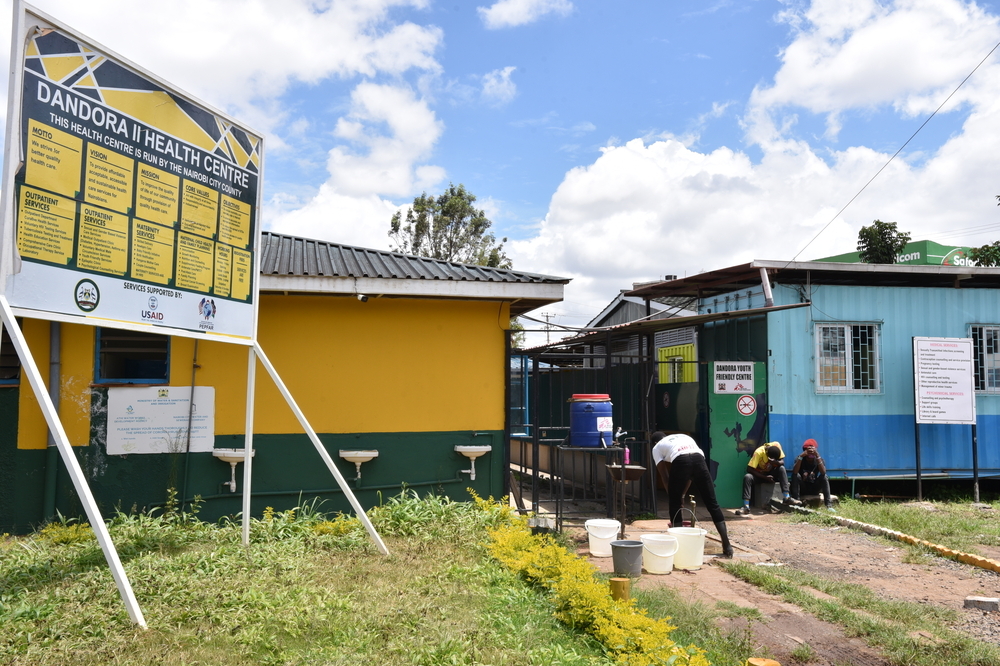
Documentary | A safe space for the youth of Nairobi, Kenya, in Dandora.
When was the Dandora Youth Friendly Centre founded?
Established in 2021, the Dandora Youth Friendly Centre is a safe space for young people ages 10 to 24. It offers more than just medical care. This vulnerable population grapples with urban violence, substance abuse, and socio-economic challenges such as unemployment and poverty.
"Safe spaces enable you to express yourself freely without fear of contradiction, intimidation, coercion or anything else,” explains Daniel Katavi. Daniel is one of the youths who is benefiting from the centre’s services.
The centre operates seven days a week, with Sundays reserved for targeted activities for specific vulnerable groups. It provides both medical and psycho-social services alongside recreational facilities. The medical side consists of two medical consultation rooms and a psychologist’s room. It has services provided by nurses, a psychologist, a social worker, and community health educators.
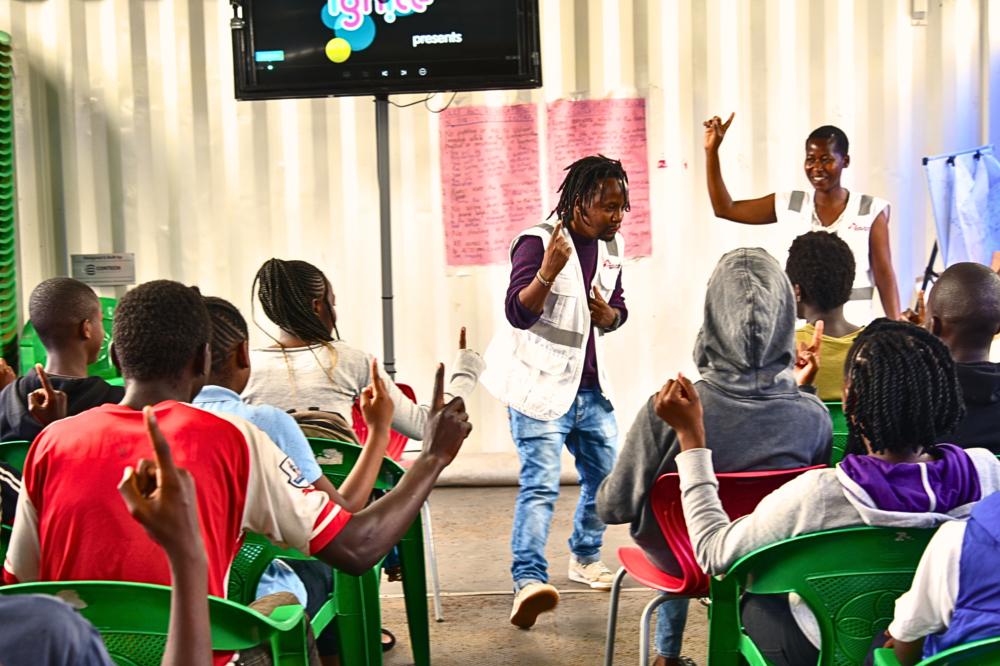
The Impact of the Dandora youth-friendly Centre
In 2023 alone, the youth centre team provided 5,316 medical services. This includes mental health consultations, with 21,661 youth accessing social and recreational services. The healthcare services focus on sexual and reproductive health (SRH). In addition, it includes family planning services, HIV prevention, counselling and testing with linkage to care, antenatal care, post-abortion care, and treatment for sexually transmitted infections. Most importantly, it cares for sexual and gender-based violence survivors and mental health counselling and referral.
Beyond medical care, the youth centre offers various social support services. These include health educational talks, life skills and mentorship training, career development training, computer classes, library services, a pool table, board games, and linkages to other organisations.
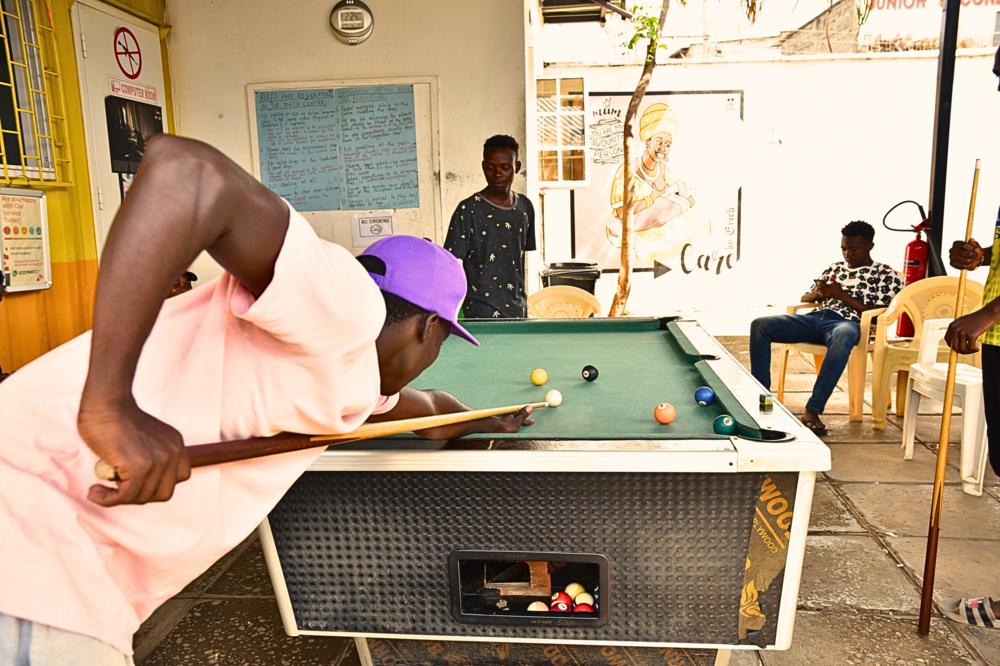
A main pillar of the centre is the participatory approach in designing and delivering the services. The youth have a vital role in advising the management through continuous dialogue and feedback.
“If we bring our own solutions, it cannot be sustainable. Youth are creative and able to find solutions to their issues. We ensure they are actively involved in the planning and implementation of the activities,” says Claire Lungahi. Claire is a community health educator at the centre who oversees these activities.
Involving parents in the centre
Parents get involved in bringing their children to the centre.
“I trust the information here. I know my twelve-year-old son receives health education when he comes to the clinic. He comes to study and uses the library services," Purity Toyo, a parent to a youth, explains.
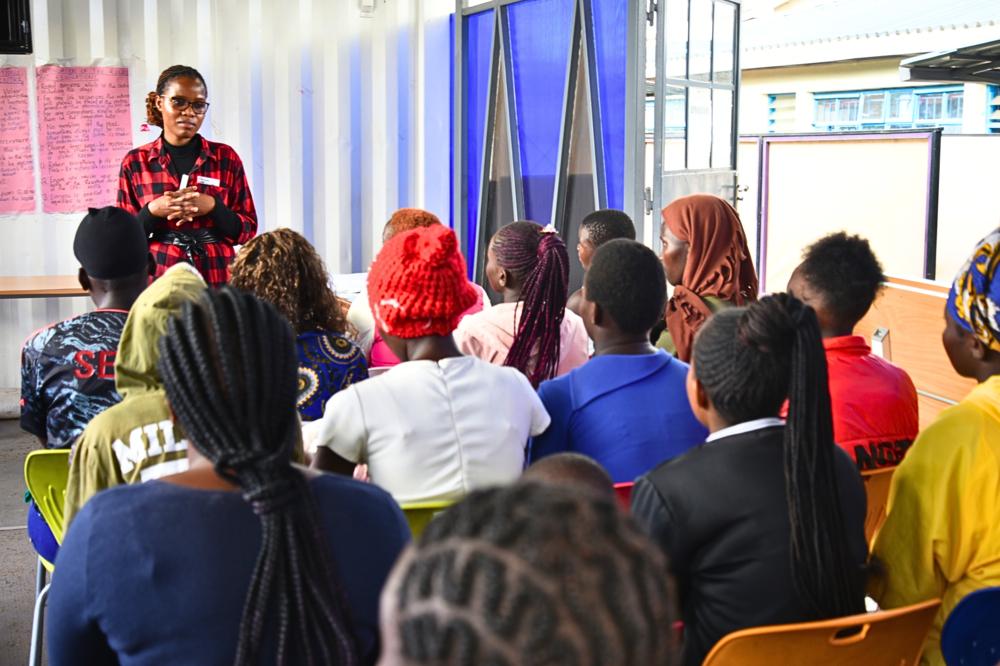
“I believe that youth should be taught the truth on sexual reproductive health and gender-based violence, since we know that they are susceptible to abuse and violence. I believe he may be more open to speak about issues he goes through with the health care workers in the clinic than with me sometimes.”
I want my son to do better. I have introduced more young people to the youth centre, as it has a positive influence on them.Purity Toyo, a parent to a youth
Purity, who became a mother at 15 years old, recognises the importance of comprehensive sexual reproductive health education for youth.
“I want my son to do better. I have introduced more young people to the youth centre, as it has a positive influence on them, especially during school holidays, to keep them engaged. They also have an opportunity to find health services while at the clinic,” she affirms.
Sunday sessions are set to accommodate the specific health needs of key young populations and vulnerable groups like domestic workers.
“As domestic workers, we work from Monday to Saturday, and getting permission within the week is a hurdle. Having a set day on Sundays allows us to access the services quickly when we come to the hospital,” says Sylvia Wambui, a domestic worker.
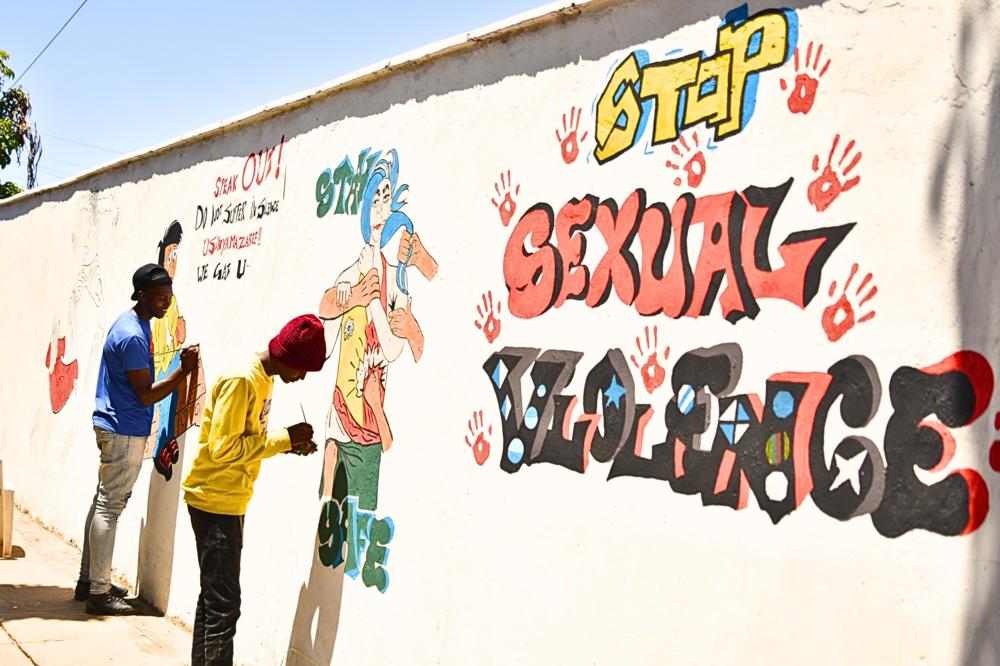
MSF works with other organisations, such as the Initiators of Common Awareness (ICA). ICA is a youth group based in Dandora. It seeks to enhance mental health care messaging to young people and link them to services. “Youth in Dandora go through many challenges like unemployment, poor sanitation conditions and other social challenges. Our intent is to ensure we find ways to overcome these and link our peers to a psychologist,” says Matthew Ogoti, ICA chairperson.
Despite its modest size, the centre behind the green gate has become a familiar place for the youths. It addresses their unique needs and significantly impacts their lives by reducing barriers to healthcare access.
[ENDS]
